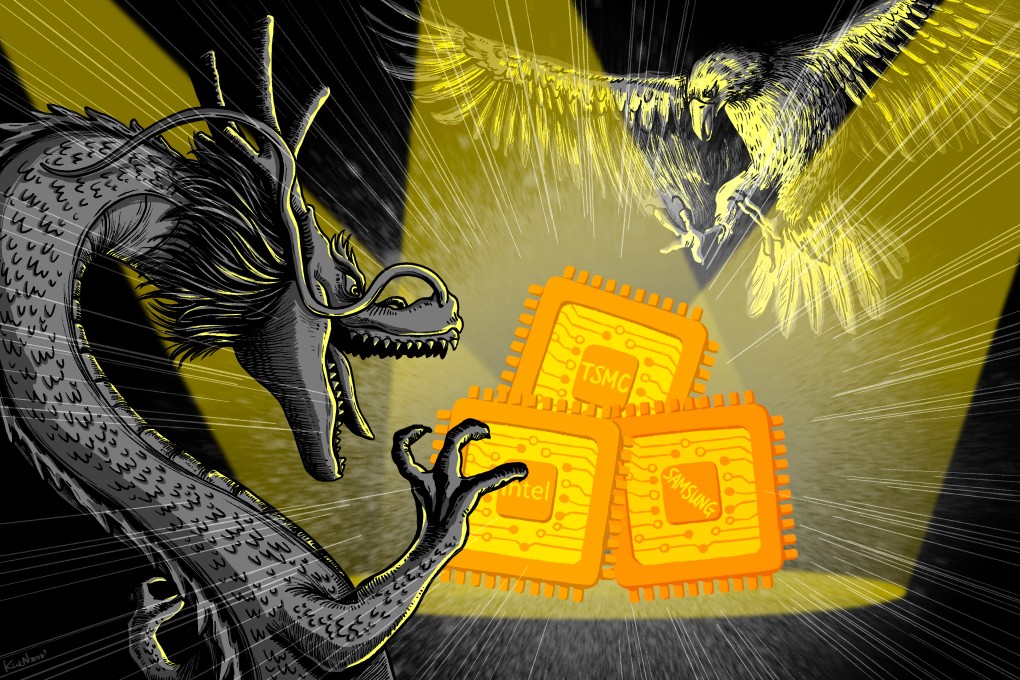As chip-making business returns to US, Washington – and Arizona – dangle subsidies in race against China
- Rising in the desert near Phoenix is a US$12 billion semiconductor factory owned by Taiwan’s TSMC, with the company lured by US funding and tax credits
- The industry is playing on a ‘much more global chessboard’ thanks to growing US-China tensions and national security efforts to safeguard chip supplies

On a dusty patch of desert north of Phoenix, Arizona, three security guards in hard hats sit under an open tent in the blistering sun as a coyote lopes across the dirt road.
“I can’t say anything. You’re not allowed in here,” barks one, ambling out of the shade, as scores of construction cranes, cement trucks and diggers nearby race to build a US$12 billion semiconductor manufacturing fabrication line, or fab, for Taiwan Semiconductor Manufacturing Company (TSMC), the world’s leading chip producer.
Fifty miles (80 kilometres) to the southeast, the American multinational Intel Corporation is investing US$20 billion in two fabs, bringing its total to six in the Phoenix area. It is also adding two more in Ohio and an additional two in Germany. Elsewhere, South Korea’s Samsung is building a fab in Texas, TSMC is investing in one in Japan and Korea’s SK Group said this week that it would invest US$15 billion in the US chip sector.
The once sleepy semiconductor industry is on a tear – spurred on by mounting US-China tensions, explosive demand for “smart” products and a global race to safeguard chip supply for national security – pushing top makers TSMC, Intel and Samsung, among others, into a searing geopolitical spotlight.
“The semiconductor industry as a whole has gone from just a nerdy corner of the economy to be front and centre,” said Scott Kennedy, an analyst with the Centre for Strategic and International Studies in Washington. “It’s a much more global chessboard that the companies are thinking about.”
Fuelling the melee is China’s race for chip primacy, outlined in its “Made in China 2025” road map, sparking fears that Beijing’s ambition and leverage over supply chains could threaten strategic sectors from cellphones to F-15 fighter jets.